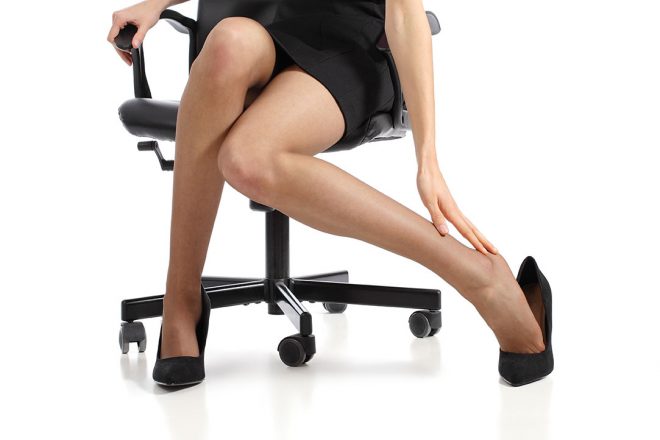Originally posted by the Alberta College and Association of Chiropractors
We live in an age where counting our steps everyday has become the norm. People spend an average of four hours each day on their feet and take 8,000 to 10,000 steps. It’s easy to forget the part of our body taking the brunt of those steps, our feet! For those with flat feet, the repetitive stress can take a toll.
What does it mean to be flat-footed?
Flat-foot means a lack of the medial longitudinal arch of the foot.
Few people have actual flat-feet. A true flat-foot is referred to as rigid pes planus. This is where the foot is completely flat even during non-weight bearing. This condition affects just under two per cent of adults.
What most people with flat-feet suffer from is called flexible (or functional) pes planus. Between 20 and 25 per cent of adults are estimated to have this form of flat-feet. (In this case, the arch will appear normal when the person is sitting (i.e. not bearing weight). However, when you stand up, you won’t be able to place an index finger under the arch. This is the form of flat feet we’re referring to in this blog.
Over time, flat-feet can lead to problems, including;
- heel pain,
- bunions,
- hammertoes,
- shin splints, and
- knee, hip or back pain.
How can I relieve the pain associated with flat-feet?
A visit to your chiropractor can do wonders for those feeling the pain of flat-feet. Your chiropractor will likely suggest individually fitted, orthotic arch supports once they’ve determined flat-feet to be the cause of your discomfort.
Orthotic arch supports are heat moldable plastic shoe inserts designed to support the arch on the inside of the foot. Orthotics also help in realigning your foot’s ankle joints and bones.
A study even found orthotics to be effective in increasing athletic performance for those with flat-feet. Those tested ran with better efficiency and consumed less oxygen when running with orthotics.

